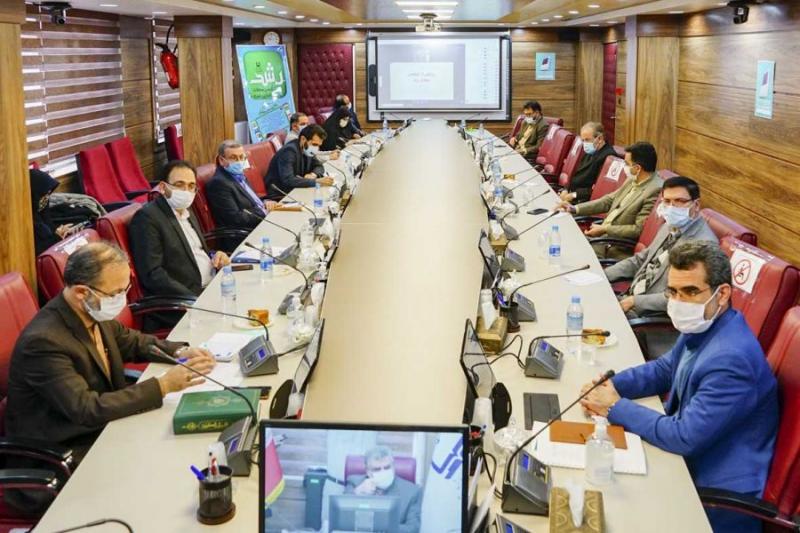
Stressing the significance of research, Dr. Hassan Maleki, Deputy Minister and Head of Organization for Educational Research and Planning (OERP), stated, "The Relationship between research and curriculum is similar to the liaison between land and seeds."
According to Public Relation and International Affairs Office at OERP, the commemoration ceremony of Research Week was held in the Shahid Salimi Jahromi hall on Wednesday, December 16. It was reported to be attended by Dr. Maleki, as well as the OERP deputies and managers.
Congratulating Research Week, the head of the organization noted, "The auspicious point about research is that it brings insight and vision. When a person, a group or an organization carries out a research, they, indeed, remove some veils between themselves and facts.”
“The deeper the research, the more profound will be the obtained insight; thus, research ought to be appreciated. Any factor and situation giving human being vision, must be praised and any one that deprives him/her of it, should be confronted. Research is valuable in this regard.”
The Deputy Minister of Education maintained, "Curriculum can be alive or dead. An alive one can effectively communicate with the audience while a dead one fails to communicate with learners through its symbols and codes. Some programs are apparently alive, yet they suffer from brain death.”
“If we want curricula to be alive, we must accept that their alliance with research is that of between land and seeds. For instance, if a gardener wants to plant something, his/her seeds as well as the soil ought to be of good quality, otherwise, there will be no growth.”
“We have been talking about transformation for months. Here, we need certain seeds called human and national values, localization values, attention to the society fundamental issues, thinking, comprehensive education, linking of ethics with knowledge, educational opportunities, diverse and useful learning, and enjoying art and aesthetics.”
Dr. Maleki asserted, “Research Week is a week for judging scientific and professional performance. We have to ask where we are, where we are going and where we should be. We are sure that the transformation seeds have been planted in the research field, otherwise, we will not achieve any result as fertile land is nothing but research.”
He said, "Research-oriented curriculum can transfer us from statics to dynamism. A static Curriculum will not be able to improve the learners’ situation but a dynamic one can do so since it features active and effective learners.”
The Deputy Minister of Education stated, “A research-based curriculum should be able to move the learner from textbooks to diverse educational opportunities. Textbooks cannot be deleted but they are not effective on their own. A research-oriented curriculum is not book-centered, yet textbooks should feature various educational materials accompanying them.”
“As much as a curriculum is empty of research, the learner falls asleep because his mind and action are not involved and s/he becomes isolated in this situation. A research-oriented curriculum should free the learner from isolation and lead him/her to teamwork,” Dr. Maleki stressed.
“Research-based curriculum, also known as Transformation Program, deals with research as a practice rather than with depicting it. Those in charge of planning curricula should be experts in this field rather than a specialist in their own specific academic fields, otherwise they will imposes their specialty on curricula.”
“The best curriculum ought to make balance between outcome and process and those with student-centered slogans have inadvertently fallen into the realm of educational liberalism. Process is important, but so is the result.”
“Students’ needs and interests are crucial, yet more important is their overall growth. We have to be careful even in the words we use. Educational words are coated with ideology and no word is devoid of this concept. There is no non-ideological educational method and it is Islamic ideology that is reflected in our curriculum and we proudly follow it,” he concluded.

Add new comment